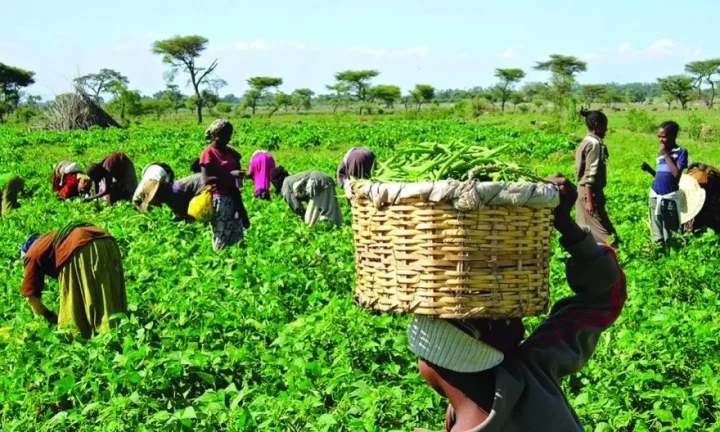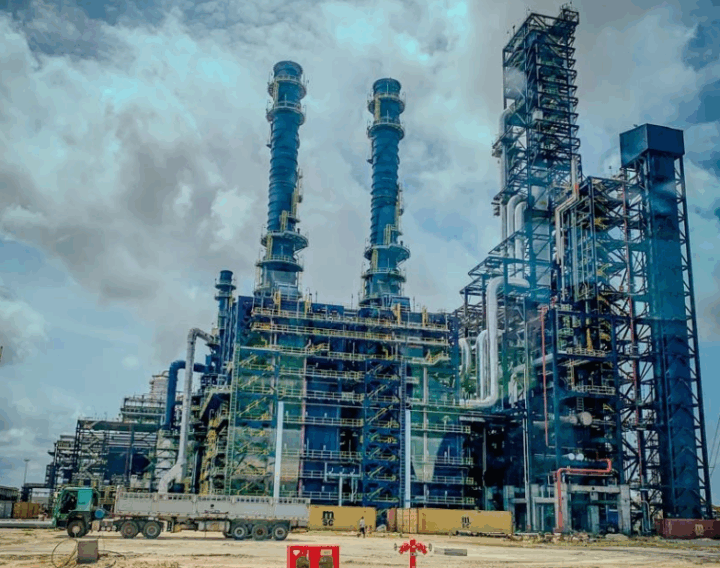BY ADEBOLA OLADOSU
Climate change poses significant challenges to food supply chains globally, with Nigeria being particularly vulnerable due to its dependence on agriculture and the variability of its climate. The impacts of climate change on food supply chains in Nigeria are multifaceted, affecting production, transportation, processing, and consumption. This critical analysis examines how climate change influences each stage of the food supply chain in Nigeria, supported by statistics and data, and suggests strategies to enhance resilience and sustainability.
Climate change affects agricultural production in Nigeria through changes in temperature, precipitation, and the frequency of extreme weather events. The Nigerian Meteorological Agency (NiMet) projects that average temperatures in Nigeria could rise by 1.5°C to 3°C by 2050. This increase in temperature can lead to heat stress in crops, reducing yields of staple crops such as maize, rice, and sorghum by up to 20%.
Additionally, changes in rainfall patterns are causing more frequent droughts and floods, which disrupt planting and harvesting schedules. The World Bank reports that droughts have increased in frequency in northern Nigeria, reducing water availability and affecting crop growth. Conversely, flooding in southern Nigeria damages crops and infrastructure, leading to significant agricultural losses.
Advertisement
Climate change also affects livestock production in Nigeria through heat stress, reduced water availability, and changes in pasture quality. Heat stress can decrease livestock productivity and fertility, while droughts reduce the availability of water and fodder. The Food and Agriculture Organization (FAO) estimates that climate change could reduce livestock production in Nigeria by 10% to 15% by 2050.
Rising temperatures and changes in precipitation patterns affect fisheries and aquaculture, which are important sources of protein for many Nigerians. Warmer temperatures can lead to changes in fish distribution and productivity, while altered rainfall patterns can affect water quality and availability for aquaculture. The FAO reports that climate change could reduce fish catches in Nigeria by up to 30% by 2050.
Climate change impacts transportation infrastructure, which is critical for moving food from farms to markets. Floods and storms can damage roads, bridges, and railways, disrupting the transportation of food products. The National Emergency Management Agency (NEMA) estimates that flooding in Nigeria causes annual economic losses of over $1 billion, with a significant portion affecting transportation infrastructure.
Advertisement
Damage to infrastructure and increased frequency of extreme weather events can lead to higher transportation costs, affecting the affordability of food. Increased fuel prices, driven by disruptions in supply chains and infrastructure damage, can also contribute to rising transportation costs. The World Bank highlights that transportation costs in Nigeria account for up to 30% of the final price of food products, making them sensitive to climate-induced disruptions.
Climate change can affect food processing facilities through increased temperatures and extreme weather events. Higher temperatures can increase cooling and refrigeration costs, affecting the viability of processing operations. Floods and storms can damage processing facilities, leading to production delays and increased costs.
Climate change exacerbates post-harvest losses in Nigeria, which are already high due to inadequate storage facilities and infrastructure. Increased temperatures and humidity can accelerate spoilage and pest infestations, reducing the shelf life of food products. The FAO estimates that post-harvest losses in Nigeria account for up to 40% of total agricultural production, with climate change expected to worsen these losses.
Climate-induced disruptions to food production, transportation, and processing affect the availability and access to food. Reduced agricultural yields and increased transportation costs can lead to higher food prices, making it difficult for low-income households to afford necessities. According to the World Food Programme (WFP), over 19% of Nigerians are food insecure, with climate change exacerbating this issue.
Advertisement
Climate change can also affect the nutritional quality of food products. Changes in temperature and precipitation can alter the nutrient content of crops, reducing their nutritional value. Additionally, increased reliance on processed foods due to disruptions in supply chains can lead to poor dietary diversity and nutritional outcomes.
Climate-smart agriculture (CSA) practices can enhance resilience and sustainability in food production. CSA includes practices such as improved crop varieties, efficient water management, and integrated pest management. The African Development Bank (AfDB) estimates that CSA could increase agricultural productivity in Nigeria by up to 25% and reduce emissions by 15%.
Investing in resilient infrastructure is crucial for enhancing the resilience of food supply chains. This includes building climate-resilient roads, bridges, and storage facilities to withstand extreme weather events. The World Bank emphasises the importance of infrastructure investment in reducing transportation costs and improving market access.
Technological innovations, such as precision agriculture, digital tools, and biotechnology, can enhance the resilience of food supply chains. Precision agriculture techniques, including remote sensing and data analytics, enable farmers to optimise resource use and improve decision-making. Biotechnology offers opportunities for developing climate-resilient crop varieties with improved yield and nutritional value.
Advertisement
Effective policies and governance frameworks are essential for addressing the impacts of climate change on food supply chains. Governments must prioritise climate adaptation and mitigation in national development plans, allocate resources for climate action, and strengthen institutions to support implementation. International cooperation and partnerships are crucial for mobilising funding, knowledge sharing, and capacity building.
Engaging communities and building their capacity to adapt to climate change is vital for enhancing resilience in food supply chains. Education and extension services can equip farmers with the knowledge and skills to adopt climate-resilient practices. Community participation is crucial for developing context-specific solutions that address local needs and priorities.
Advertisement
Climate change poses significant challenges to food supply chains in Nigeria, affecting production, transportation, processing, and consumption. Addressing these challenges requires a comprehensive approach that combines adaptation and mitigation strategies, technological innovation, and policy interventions. By adopting climate-smart agriculture practices, investing in resilient infrastructure, and leveraging technological innovations, Nigeria can build resilient food supply chains that support sustainable development and improve food security.
Ensuring food security requires addressing the root causes of vulnerability, promoting inclusive policies, and empowering marginalised communities to adapt to climate change impacts. With concerted action and commitment, Nigeria can overcome the challenges posed by climate change and secure a sustainable food future for its people.
Advertisement
Oladosu is an environmental journalist and a graduate student of the International Institute of Journalism (IIJ).
Advertisement
Views expressed by contributors are strictly personal and not of TheCable.








